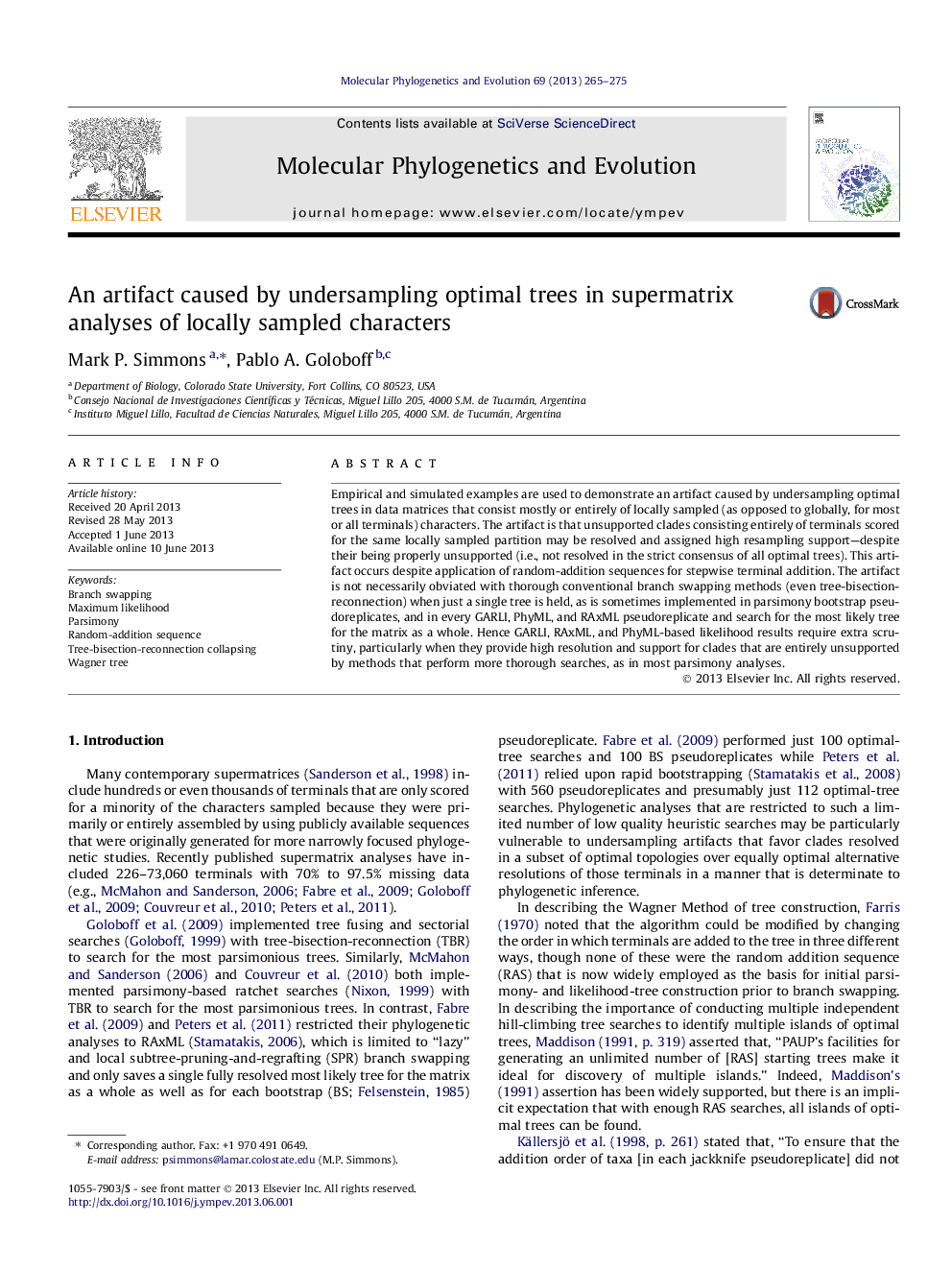| Article ID | Journal | Published Year | Pages | File Type |
|---|---|---|---|---|
| 5920103 | Molecular Phylogenetics and Evolution | 2013 | 11 Pages |
â¢Artifact wherein clades scored for same locally sampled partition are resolved yet properly unsupported.â¢Artifact occurs despite application of random-addition sequence and tree-bisection-reconnection if 1 tree held.â¢Artifact applies to searches for optimal trees as well as bootstrap resampling.â¢Artifact applies to both parsimony and maximum likelihood analyses.â¢Tree-bisection-reconnection collapsing may be applied to reduce the artifact.
Empirical and simulated examples are used to demonstrate an artifact caused by undersampling optimal trees in data matrices that consist mostly or entirely of locally sampled (as opposed to globally, for most or all terminals) characters. The artifact is that unsupported clades consisting entirely of terminals scored for the same locally sampled partition may be resolved and assigned high resampling support-despite their being properly unsupported (i.e., not resolved in the strict consensus of all optimal trees). This artifact occurs despite application of random-addition sequences for stepwise terminal addition. The artifact is not necessarily obviated with thorough conventional branch swapping methods (even tree-bisection-reconnection) when just a single tree is held, as is sometimes implemented in parsimony bootstrap pseudoreplicates, and in every GARLI, PhyML, and RAxML pseudoreplicate and search for the most likely tree for the matrix as a whole. Hence GARLI, RAxML, and PhyML-based likelihood results require extra scrutiny, particularly when they provide high resolution and support for clades that are entirely unsupported by methods that perform more thorough searches, as in most parsimony analyses.
Graphical abstractDownload full-size image
